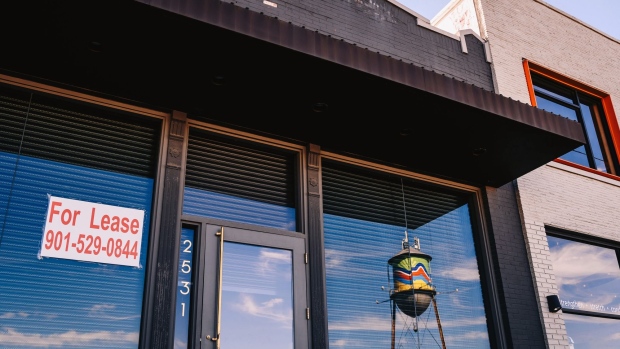Nov 20, 2020
Morgan Stanley Sees K-Shaped Recovery For Commercial Real Estate
, Bloomberg News

(Bloomberg) -- Morgan Stanley says commercial real estate will see a so-called K-shaped recovery from the pandemic, leading to stark winners and losers among holders of commercial mortgage-backed securities.
This bifurcation means that some deals will experience much higher realized losses than others, depending on factors such as bond, vintage and property type. Bonds backed by hotels, retail and offices are likely to see more struggles than those on industrial properties.
The split creates a market where due diligence and active management is key as investors seek to gain an upper hand amid the chaos.
“A bond picker’s market has emerged,” a team of Morgan Stanley analysts led by Richard Hill wrote in an outlook report Wednesday. For instance, a “market of ‘haves’ and ‘have-nots’ has emerged in BBB- (CMBS bonds), as idiosyncratic risks and rising loss expectations magnify quality tiering.”
This has led to scant trading opportunities for older BBB- CMBS conduit tranches. Investors are unwilling to sell the higher-quality bonds, while the lower-quality bonds lack sponsorship, the analysts wrote.
The CMBS market has struggled this year as Covid-19 kept shoppers out of malls, travelers away from hotels and workers home from offices. More than 1,400 CMBS loans totaling $29.3 billion are currently delinquent, Morgan Stanley said. Lodging and retail properties have the highest delinquencies, at 22.6% and 11.8%, respectively.
To make things more complicated, the overall CMBS headline delinquency rate of 7.8% “may be understated by 300 to 400 basis points, given a combination of forbearance and borrowers drawing down on reserves to pay current principal and interest payments,” the report said.
The bank’s expected-loss projections for CMBS conduits are in an average range of 5% to 7%, depending on which year a CMBS was issued. That could exceed 10% and even hit the high teens for specific deals that are more troubled, the report said.
Losses may reach as high as the AA ratings tier in certain bear-case scenarios, the Morgan Stanley research show, while lower-ranked classes will almost definitely see some realized losses, depending on the transaction.
“There is a wide range of deal-by-deal losses across all vintages,” Hill wrote, noting that additional stresses on lodging, retail, and office properties may cause loss projections to rise.
Despite the challenging picture of performance, CMBS issuance next year may surprise to the upside. The bank projects $60 billion to $70 billion in 2021 sales across conduit, single-asset, single borrower, and commercial real estate CLO offerings as maturities come due.
CMBS sales have reached about $54.4 billion so far this year, more than 40% lower than the same span in 2019, according to data compiled by Bloomberg.
Relative Value: CLOs
- Goldman Sachs Asset Management remains constructive on senior CLO tranches, as analysts think spreads have room for further compression and offer attractive carry for a short spread duration profile, according to a recent research note
- AAA rated CLO spreads have lagged other securitized credit sectors
- “Spreads on securitized credit sectors tightened following the U.S. election and positive vaccine developments, consistent with the improvement in risk assets”
Quotable
“The way special servicers look at the vaccine news is, ‘Does this make the CMBS borrowers more likely to commit new capital to protect their equity? Will they now be more apt to commit capital?’” said James Shevlin, president and chief operating officer of special servicer CWCapital. “We hope the answer is yes, as some borrowers are in round two of forbearance.”
What’s Next
ABS deals in the queue include Volkswagen (auto lease) and ServiceMaster Brands (whole business). The latter transaction may price on Friday. CLOs from KKR and Symphony Asset Management may also price on Friday or next week.
©2020 Bloomberg L.P.





